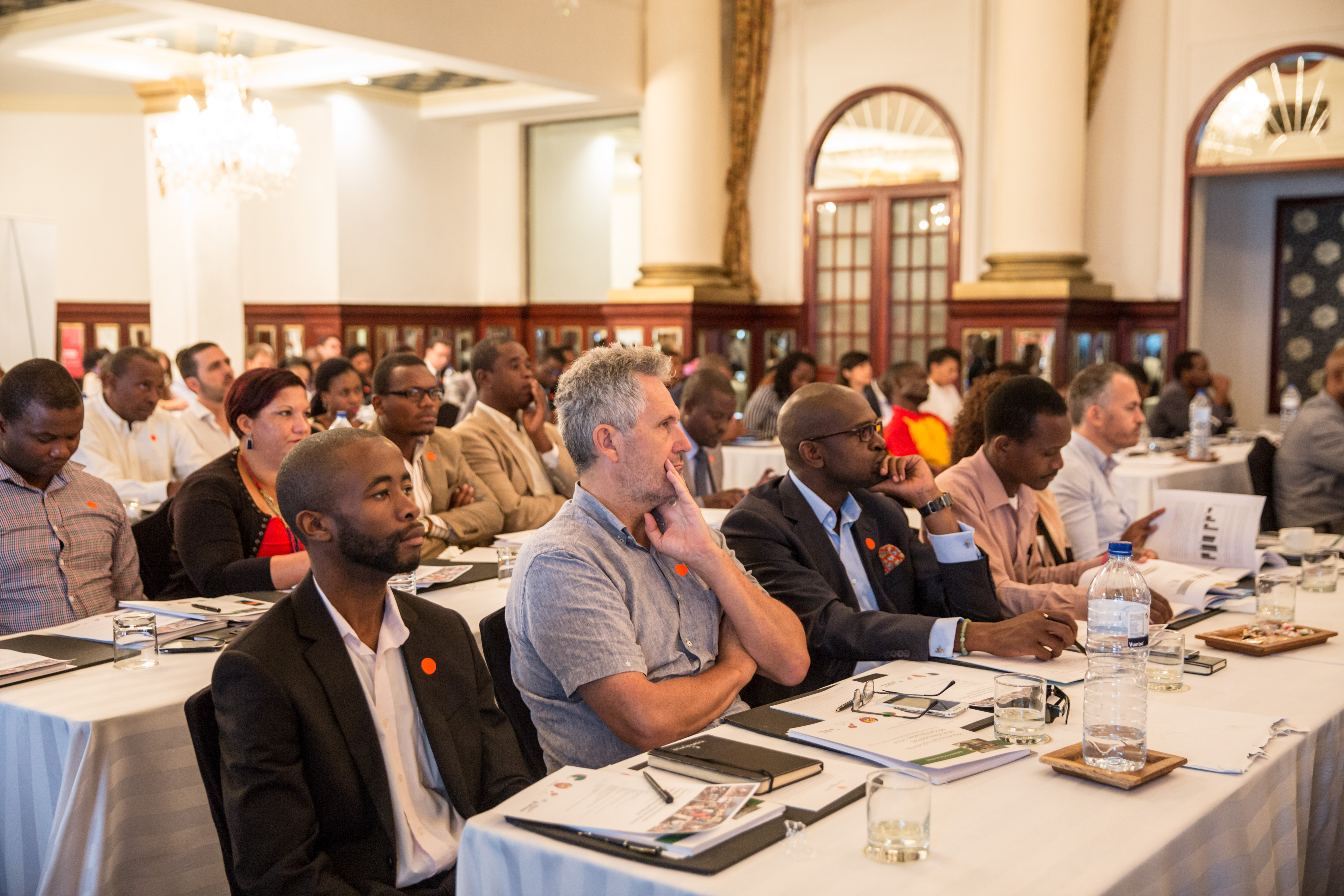Mozambique: improving our understanding of the potential of manufacturing
Mozambique’s manufacturing industry is facing many challenges. Nevertheless, we should not underestimate its linkages to the rest of the economy and its potential in terms of job creation and structural transformation.
On 23 April 2018, the Inclusive Growth in Mozambique project hosted a public forum to share the results of its report on the business landscape for Mozambican manufacturing firms. Project partners, business owners, students, researchers, the media, as well as policy makers participated in the debates of the public forum in Maputo.
What I really liked in this event was that so many people seemed to be deeply interested and keen to know more about the private sector, and especially manufacturing firms in Mozambique. Already at the start of the project we knew that there’s not a lot of existing data and statistics on manufacturing firms that would be publicly available or known. But it has been particularly striking, however, to realize how deep the lack of reliable information is or is perceived to be. Both the policy makers and business community acknowledged that this certainly doesn’t help policy formation or analysis, nor does it support business development.
The 2017 Survey of Mozambican Manufacturing Firms (IIM 2017) is one step to overcome the lack of information on the subject. It builds on data collected in 2012 to trace how the changing economic conditions have affected the development of firms in the manufacturing sector. The survey encompasses economic performance of the sector, its commercial relations and business networks, credit and finance, informality, workforce, as well as its leadership characteristics.
Hit by the economic crisis
It was also very alarming to hear that the recent economic crisis that escalated in Mozambique in 2015 had a much bigger effect on manufacturing activity and especially on the workforce than generally thought. Many enterprises closed down, with surviving firms being forced to reduce the number of workers and substitute full-time with part-time workers. In addition Mozambique did not improve its business and legal environment in recent years, and thus its ranking in the Doing Business classification did not improve, which was not helpful either.
The discussion in the public forum focused on how the policy can tackle these issues to allow firms to thrive. The several questions posed to the speakers and discussants showed that the spectrum of opinions and perceptions on the issue is very broad. For example, some think the government is mostly responsible for the (lack of) industrial success in recent years, whereas others believe manufacturing enterprises should have been more dynamic and they could have taken better advantage of the opportunities and incentives created by the government.
Take-home messages
The first important take-home message from the forum was that the industrial and especially manufacturing sector is clearly understudied. This is especially the case with respect to job creation, linkages with the rest of the economy and the importance of manufacturing in terms of structural transformation.
From a series of UNU-WIDER working papers by Antonio Cruz and et al. [1,2,3,4] we know that Mozambique has not undergone a structural transformation and around 80 per cent of its labour force is still in agriculture, applying traditional manual and low-productivity technology. However, Cruz et al. have noticed that although the share of manufacturing in total GDP is relatively small, its annual average value added per worker is much higher than it is for other sectors. This gives us evidence of the potential of manufacturing for value added creation and economic growth stimulation. Moreover, while big natural resource projects are shown to have weak linkages to the rest of the economy, manufacturing seems to have much more potential in terms of job creation and spillovers. Furthermore, the manufacturing sector hosts the majority of firms owned by domestic investors.

The second take-home message is that the effect of the economic crisis of 2015 has also been underestimated on this sector, especially regarding job losses and the number of enterprises that closed down. In a Policy Brief based on the same report, Ricardo Santos notices that the firms that survived the economic downturn adopted restrictive human resources management, reducing the workforce and making it more flexible, which in turn made employment more vulnerable.
Finally, public policies in this area indeed have a big effect and can affect enterprises, either positively or negatively. Again, from Cruz et al. we know that in general industrial policies have failed to promote manufacturing diversification and expansion of output as a proportion of GDP, and that the state still has a very strong influence on the creation and development of enterprises through the licensing process, labour inspections, and tax inspections. As an example, a local content law is currently being drafted in order to address the need to develop further connections between local companies and extractive industries, and its final shape will be crucial for the expansion of the manufacturing sector. The Mozambican government has supported the creation of synergies among enterprises in different sectors, with mixed evidence of success. (Mozambique has managed to establish and run some of the necessary institutions for sustaining industrialization – export processing zones, rapid development zones, an institute for the promotion of micro, small and medium enterprises, a district development fund, a technology park, a one-stop electronic window for clearing imports among others). This is broadly recognized as a positive example of policy support to the enterprise sector.
Conversely, the current economic crisis in Mozambique was triggered by very questionable policy decisions. It deeply weakened the trust of international institutions and development partners and is among the examples of policies, that have had a negative effect on the manufacturing sector of Mozambique.
The 2017 Survey of Mozambican Manufacturing Firms was planned and implemented by researchers from the Development Economics Research Group (DERG) at the University of Copenhagen, the United Nations University World Institute for Development Economics Research (UNU-WIDER), and the Centre of Economic and Management Studies (CEEG) at the University of Eduardo Mondlane in Maputo within the framework of the Inclusive Growth in Mozambique project. Here the full report.
The views expressed in this piece are those of the author(s), and do not necessarily reflect the views of the Institute or the United Nations University, nor the programme/project donors.


